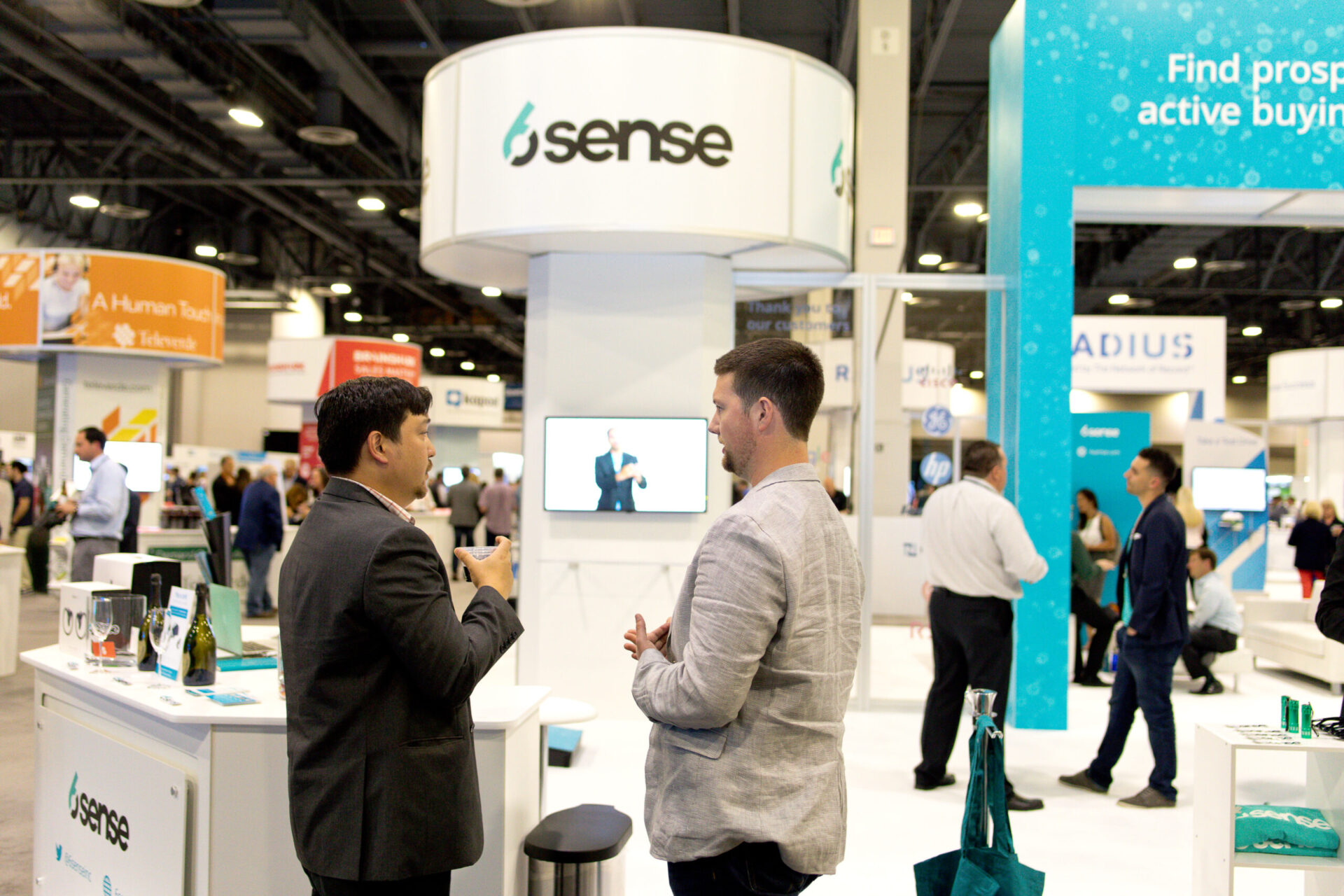Summit 2018 Case Study Preview: An Interview With 6sense
- This year’s SiriusDecisions Summit will feature several must-attend case studies showing how real-life organizations use the hottest B2B technologies
- 6sense’s case study will feature stories from Dell, Xactly and Sage Intacct
- Amanda Kahlow, founder and chief strategy officer at 6sense, recently spoke with us about her organization’s presentation
This year’s SiriusDecisions Summit features more than 100 B2B practitioner case studies spanning all of the most important topics in sales and marketing technology. At these sessions, Summit delegates can hear from peers who have deployed various tools and platforms and learn how having the right technology in place can markedly improve processes and results.
In this post – the first in a series with our Summit Premier sponsors – we spoke with Amanda Kahlow, founder and chief strategy officer at 6sense, which will be hosting three case studies at Summit.
What will your case studies cover?
Amanda: Our case studies will cover how the 6sense Demand Orchestration platform was able to uncover account-level insights for our enterprise customers and help them transform their marketing and sales tactics as they aim to increase the effectiveness of their account-based marketing (ABM) strategies. These examples will be depicted through different means, as each of our customers – Dell, Xactly and Sage Intacct – tells their own unique story.
The session with Dell dives into how they gained visibility into their demand signals and, as a result, put ABM in practice and executed innovative thought leadership brand and demand generation campaigns. Xactly’s experience encompassed the use of joint goal-setting, integrated processes across teams, campaign execution and orchestration technology to drive their pipeline efforts. Lastly, our story with Sage Intacct delves into enabling them to turn their ABM planning to ABM activation after deploying 6sense, through a combination of the right people, process, and technology.
 How did you decide on this particular topic and customers?
How did you decide on this particular topic and customers?
Amanda: Collectively, these three customers provide a comprehensive overview of different use cases and implementation approaches that are relevant to ABM practitioners. Our goal was to leverage these case studies as real examples to showcase how comprehensive 6sense is, and how we can help in every stage of the SiriusDecisions Demand Unit Waterfall®.
Who should make sure to attend your case studies?
Amanda: Marketing practitioners and sales leaders at mid-sized to large B2B organizations looking to drive more effectiveness with their ABM efforts will find these sessions very valuable.
Specifically, within marketing, those that are responsible for demand generation, digital media and cross-functional ABM enablement will appreciate the use cases that will be covered. Sales leaders will also greatly benefit from these sessions as they will learn from our customers which tools and capabilities will best equip their sales team with unique insights and AI-driven prioritization recommendations.
What is the most interesting trend you think we’ll see in B2B this year?
Amanda: Like last year, we think ABM will continue to be a topic of discussion. The trend last year was ABM education and establishing it as important. This year, we think it will be about establishing it as a standard for how to do B2B marketing. ABM at scale is becoming more mainstream as people try to figure out how hire the right talent, implement the right processes, and select the right technology to support their strategies.
Aside from your own content, which Summit sessions are you or someone else at your company most excited about – and why?
Amanda: We are looking forward to the ABM and demand creation SiriusFoundations sessions as it’s always interesting to gain insight on new perspectives in the space. We’re also excited about a few others: “Building an Inspiring Brand Through Customer Engagement” is interesting because staying up-to-date with customer engagement insights helps us continue to improve on customer lifecycle and retention. We always want to be learning new ways in which we can strengthen customer engagement activities from all angles and equip our teams with the latest updates in the B2B space.
We’re also looking forward to “Nurture in a Demand Unit Waterfall® World,” because learning about how buyer insights influence nurture interactions will be key to refreshing our sales and marketing strategies by providing us new perspectives on our nurture approach. Understanding the components of a successful nurture program will allow us to build demand programs of all types that focus on the right interactions and content for each stage through the Demand Unit Waterfall.
Finally, “Building the (Artificially) Intelligent Revenue Engine” goes into the importance of staying advanced and adopting smart solutions in today’s B2B world. It emphasizes why the integration of artificial intelligence is critical for B2B organizations, and what the future holds for AI in this space. Learning about how leading organizations are incorporating AI into their solutions will also be helpful for us as we continue to add to our capabilities.
Anything else you’re especially looking forward to at Summit?
Amanda: Summit attracts some of the best talent and peer groups in marketing, and each year we return from the conference having had some real, high-quality conversations about marketing strategy, technology insights, and CMO priorities that help us learn how to best support our customers. We are hosting a Product Showcase and Lunch & Learn on 6sense that we think will help many imagine the possibilities of ABM in a tangible way, turning theory into practical application, while giving us great feedback for our evolution as a company.
We are especially excited for this year’s Summit because it comes on the heels of some of our biggest announcements around ABM. Our 6sense Demand Orchestration Platform opens up several new conversations, and we’re looking to exchange notes with as many practitioners and leaders as possible about how they are driving ABM effectiveness.